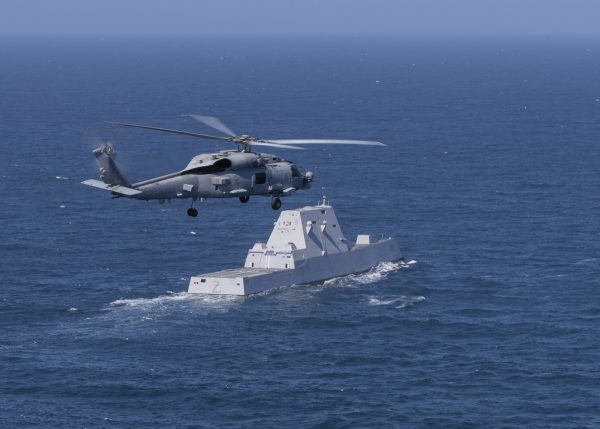In response to the agreement, members of Indonesia’s parliament have voiced concern about the increasing extra-regional military presence in the region. Christina Aryani, a member of the committee that oversees foreign relations and defence, warned that the new agreement might increase tensions between the United States and China, and that. Indonesia must be aware of any possibility of spillover effects.
Certainly, as a result of the agreement there might be a significantly increased US military presence in PNG. It is important that the United States ensures passage of warships and aircraft to and from PNG will not impinge on Indonesia’s territory and remain consistent with the United Nations Convention on the Law of the Sea.
Indonesia’s Ministry of Foreign Affairs is unlikely to make any formal statement on this issue. Indonesia understands it is PNG’s choice to make a defence arrangements with any country. Any statement might be seen as Indonesia meddling in PNG’s domestic issues. Indonesia did not make any statement when the Solomon Islands made a security pact with China.
Indonesia remains very much aware that its relationship with PNG is important. In July 2023, Indonesian President Joko Widodo made an official visit to Port Moresby to discuss the bilateral relationship. But the meeting was more focused on economic and education cooperation — not on security issues.
Even though there was no formal statement from Jakarta, Indonesia has always been concerned with extra-regional military presence in the region. For instance, Indonesia responded to British Malaya’s formation through Konfrontasi and Indonesia is concerned with the US military base in the Philippines. Indonesia also raised concerns with AUKUS and how it might provoke an arms race. Indonesia does not want the region to become a hotspot for US–China competition.
Still, Indonesia’s concern is primarily with ASEAN. Indonesia wants to ensure ASEAN will not choose between two geopolitical giants, and pushed the ASEAN Outlook on the Indo-Pacific. So far, ASEAN countries have remained solid in not choosing between the United States and China.
In Indonesia’s neighbouring region, the Pacific, US–China rivalry is intensifying. Pacific countries are more divided between the United States and China. At the end of 2022, the Solomon Islands concluded a security agreement with China. Though the agreement will not establish a Chinese military base in the Solomon Islands, it might allow increased Chinese military presence. This has raised concerns in many Western countries.
This intensifying US–China rivalry has divided Pacific countries, with some leaning toward the United States and some toward China. Geopolitical rivalry in the Pacific will not influence Indonesia’s neutral position.
It is in Indonesia’s interest to have a peaceful and stable Pacific region. During the opening of the Indonesia Pacific Forum for Development in Bali in December 2022, Indonesian Foreign Minister Retno Marsudi emphasised that ‘we must maintain the Pacific as a peaceful, stable, and prosperous region’. Any security development in the Pacific might also impact Indonesia’s security.
Indonesia has increased its engagement with Pacific countries through the Indonesia Pacific Elevation program. But it seems that Indonesia’s engagement with Pacific countries is mostly dominated by economic cooperation, such as infrastructure and trade arrangements. Indonesia should engage more with Pacific countries on security cooperation. Security cooperation is important to building trust and confidence between Indonesia and the Pacific.
It is too early to judge whether the ASEAN Outlook on the Indo-Pacific is successful. Indonesia should also promote the Outlook to Pacific Island states. Other than ASEAN centrality, one of the key principles of the Outlook is that Indo-Pacific countries should not choose the United States or China, but engage both countries in cooperation. It would be beneficial if the Pacific Islands Forum were also committed to keeping the region neutral in the intensifying US–China rivalry.
During President Widodo’s latest visit to Port Moresby, he mentioned that ASEAN should engage more with the Pacific. This indicates how ASEAN could expand its neutrality principals to Pacific neighbours. ASEAN–Pacific cooperation should not only be on geopolitical issues, but extend to people-to-people connections.
During Widodo’s visit to PNG, Indonesia signed a memorandum of understanding on education and committed to increasing the number of student exchanges between the two countries. Closer ties will create a level of trust where Indonesia should not worry about PNG’s close defence relations with other countries.
Indonesia acknowledges the sovereignty of its neighbours and their right to cooperate with other countries. But it is important the region remains committed to maintaining peace, respects neighbours’ territorial integrity and recognises the role of international law in preventing conflicts.
Aristyo Rizka Darmawan is PhD Scholar at The ANU College of Asia and the Pacific at The Australian National University and Lecturer in International Law at Universitas Indonesia.

